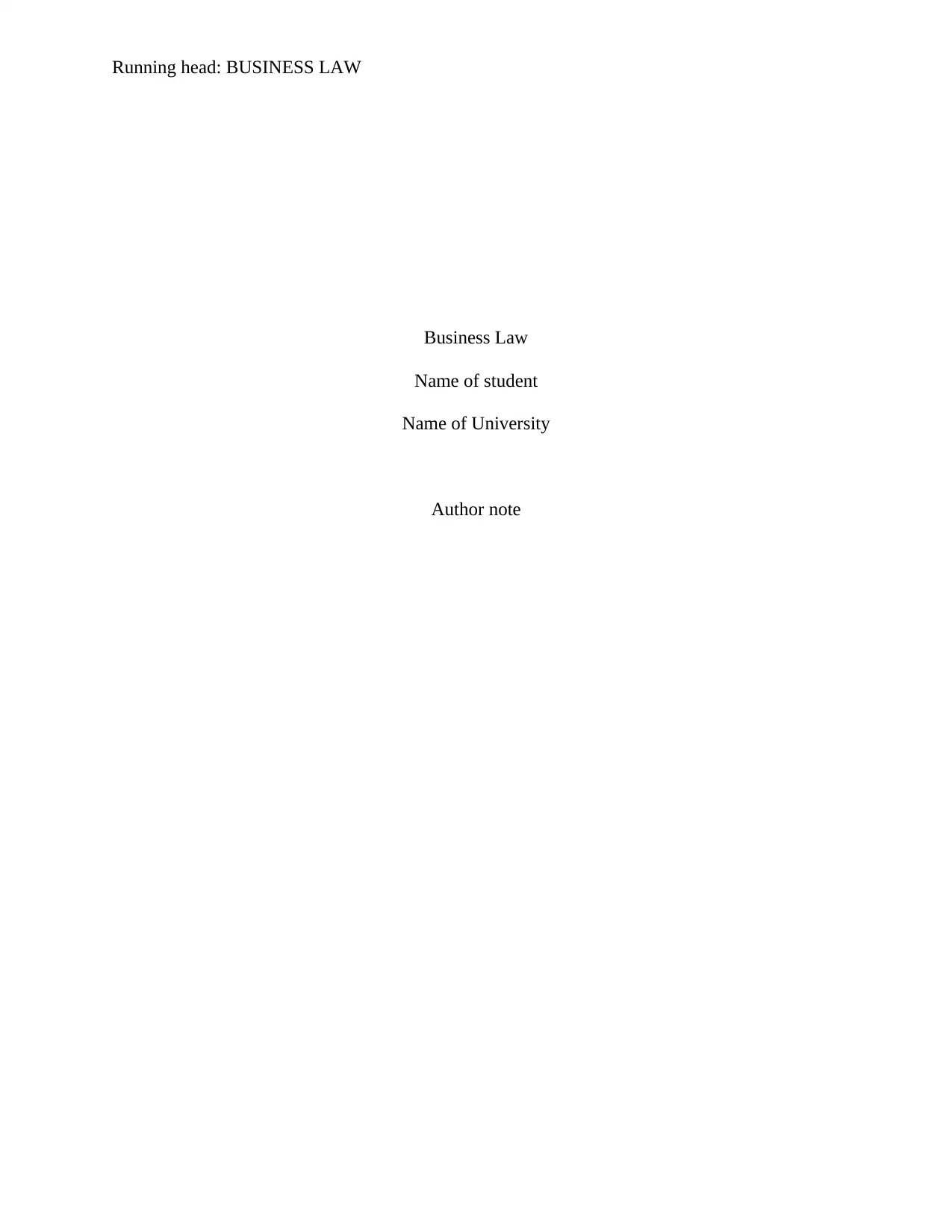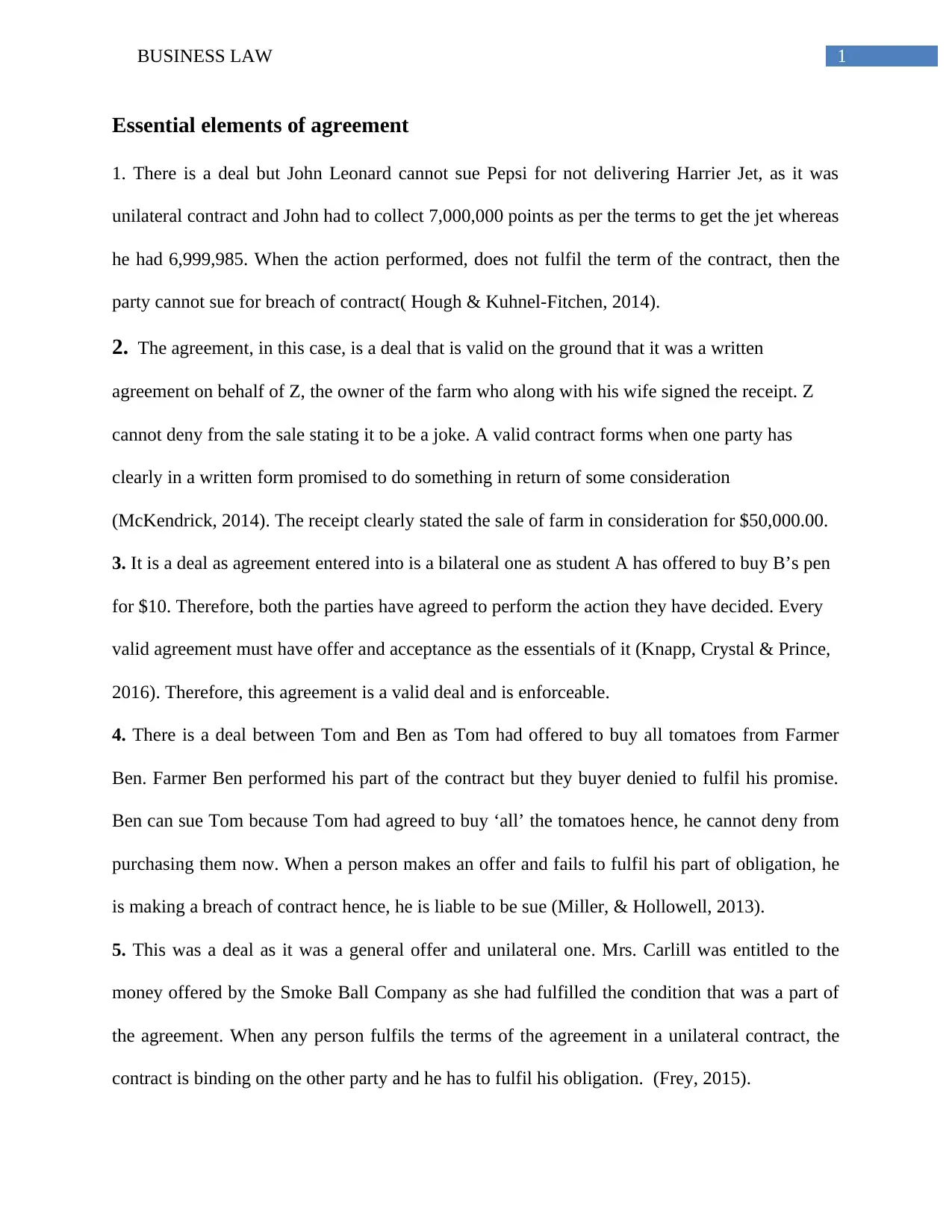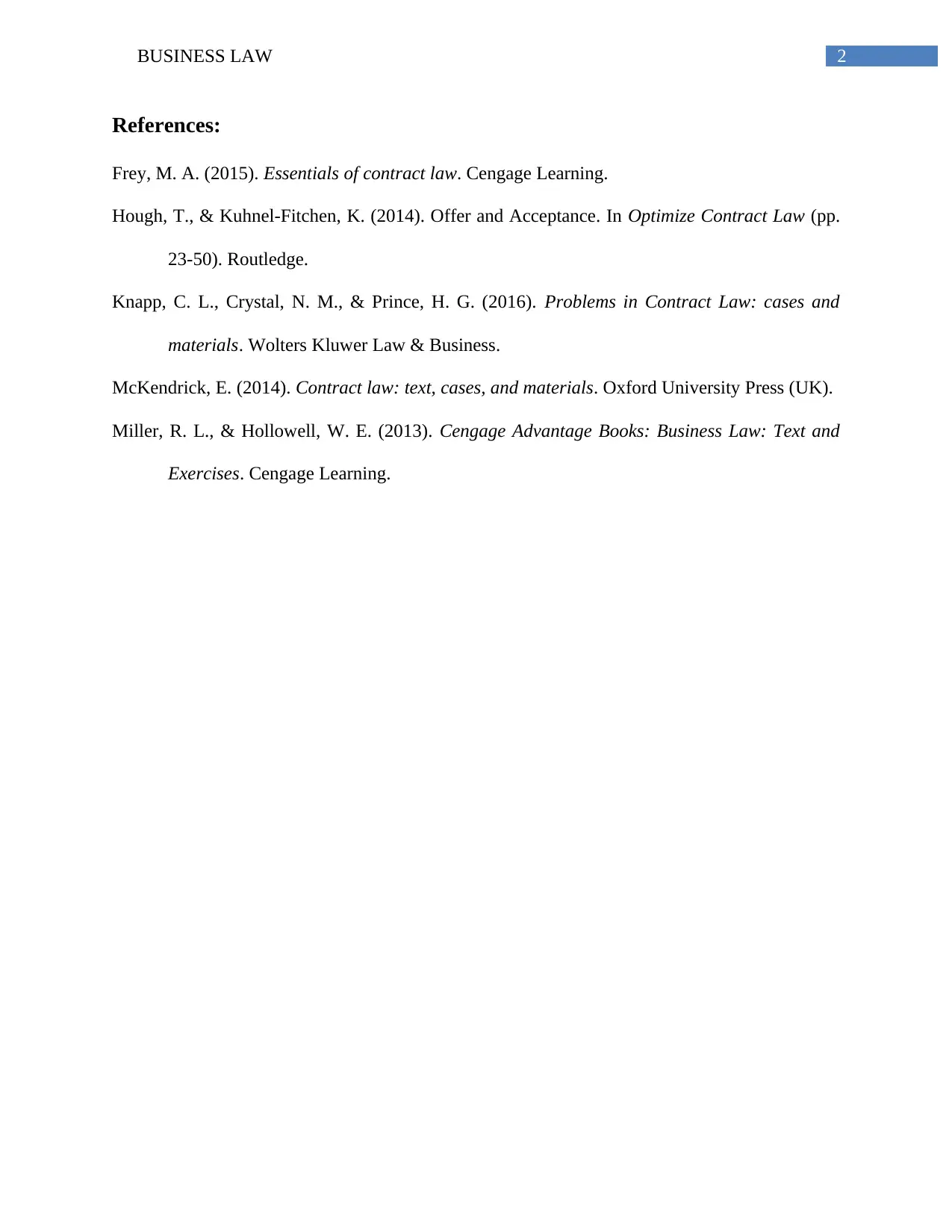Business Law: Agreement Essentials & Contractual Obligations
VerifiedAdded on 2023/06/10
|3
|595
|168
Case Study
AI Summary
This case study delves into the essential elements of agreements within the context of business law, examining several scenarios to determine the validity and enforceability of contracts. It analyzes situations involving unilateral and bilateral contracts, offer and acceptance, and potential breaches of contract. The first scenario discusses a case where John Leonard cannot sue Pepsi for not delivering a Harrier Jet because he did not fulfill the exact terms of a unilateral contract. The second scenario validates a written agreement for the sale of a farm, emphasizing that a clear written promise with consideration forms a valid contract. The third scenario confirms a deal between students A and B as a valid bilateral agreement based on offer and acceptance. The fourth scenario highlights a breach of contract by Tom, who refused to buy tomatoes from Farmer Ben after agreeing to purchase 'all' of them. Finally, the case study references Mrs. Carlill's entitlement to money from the Smoke Ball Company due to fulfilling the conditions of a general offer in a unilateral contract. This document is available on Desklib, a platform offering a wealth of study resources, including past papers and solved assignments, to aid students in their academic pursuits.
1 out of 3








![[object Object]](/_next/static/media/star-bottom.7253800d.svg)